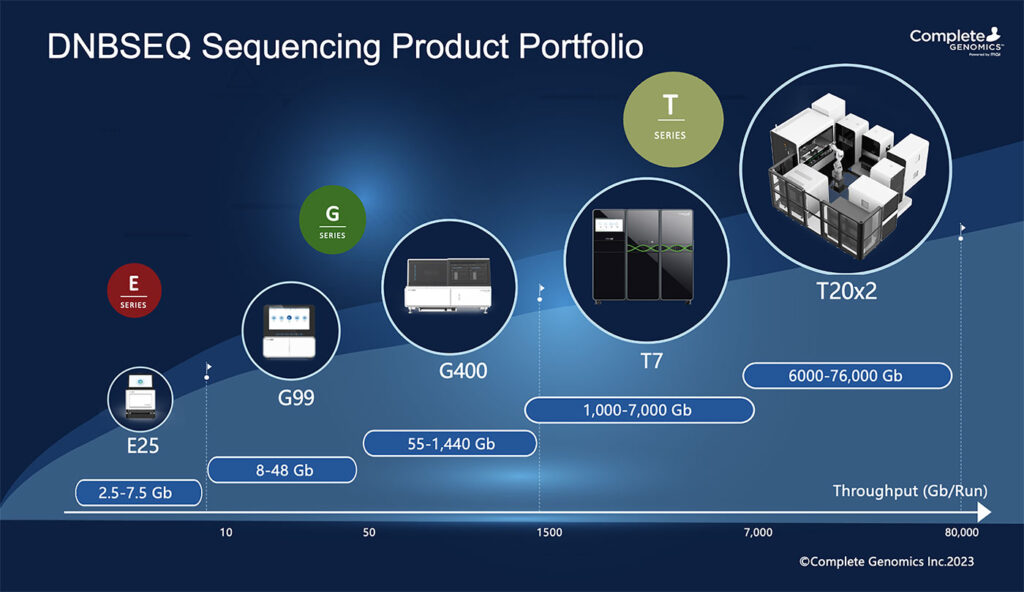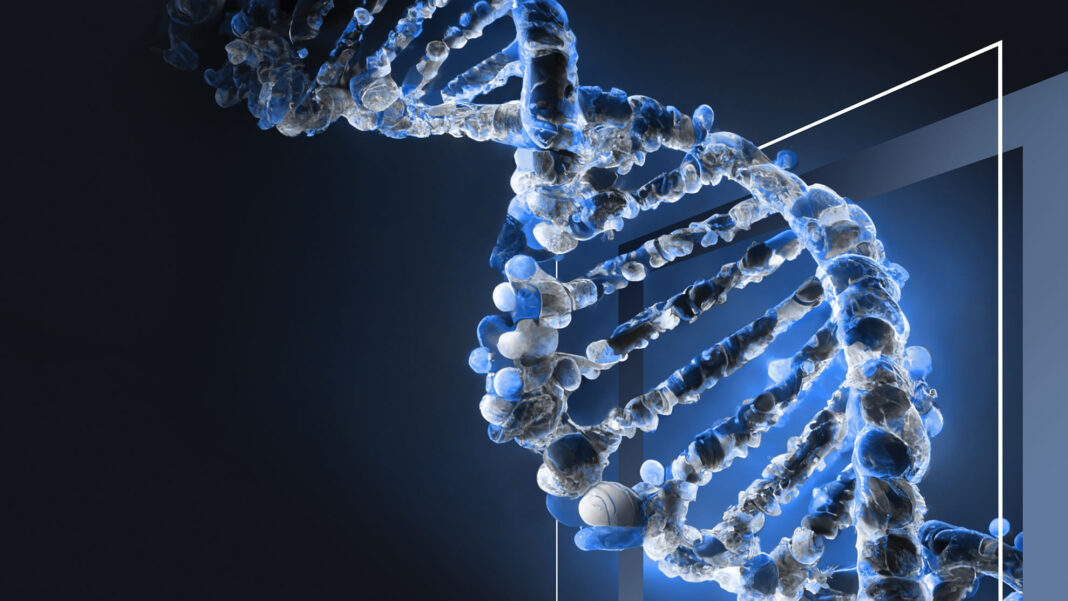Sponsored content brought to you by
Founded in 2005, Complete Genomics was the first to make whole genome sequencing (WGS) services affordable. Now, the company provides complete solutions to sequencing labs with an installed base of over 3,000 instruments.
“We proved that routine WGS, the ultimate genetic test, is feasible to the genomics community,” said Radoje (Rade) Drmanac, PhD, co-founder and CSO of Complete Genomics. “Our goal is to drive the genomics field forward with powerful, complete sequencing solutions, so we have maximized accuracy, efficiency, and affordability.”
The company’s portfolio includes low-, medium-, and high-throughput sequencers (the popular DNBSEQ-T7 sequencer with four flow cells can perform 15–60 WGS in 24 hours), and ultra-high-throughput, sequencer (the DNBSEQ-T20 platform that can sequence 50,000 genomes annually), and products that support the entire workflow (including lab automation instrumentation, kits, and support hardware to enable efficient data processing and storage).

Technology Drives Efficiency and Accuracy
Although sequencing chemistry is typically thought to be most important in ensuring accuracy in sequencing, precise DNA replication is crucial. DNBSEQ, a special DNA nanoarray technology that facilitates massively parallel sequencing (MPS), is based on DNA nanoballs that are prepared by rolling circle replication (RCR). A section of single-stranded DNA is copied by a polymerase that goes around the circle to make a concatemer of connected copies from the original circle. Each copy is made from the original template. Unlike PCR amplification, which carries the unavoidable limitation of clonal errors, DNBSEQ eliminates clonal errors as an issue.
DNBSEQ also enables DNA compaction to spots of less than 0.2 um for the formation of high-density nanoarrays facilitating more sequencing in parallel at higher throughput with reduced reagent consumption. Sample barcodes allow hundreds of DNBSEQ samples to be pooled without index hopping, resulting in negligible read misassignments. The high number of DNA copies per spot volume also results in intense brightness for more efficient array imaging.
The Complete, “Perfect” Whole Genome
“We are sequencing whole genomes, but they are not complete,” Drmanac said. Importantly, standard WGS does not separate the information from each set of chromosomes but rather reports data as a consensus. Haplotype phasing is necessary to identify alleles on the maternal and paternal chromosomes for accurate interpretation if a person has functional proteins in sufficient quantities.
Complete Genomics’ barcoding technology assigns each read a unique identifier then bins these reads to allow haplotype phasing at the same cost as a standard genome. The barcoding also resolves the limitations that exist in standard sequencing such as the 30 or more blind genes.
“That is our complete double-WGS product,” Drmanac said. “For our standard genome, we have a PCR-free library and PCR-free DNA nanoballs that provide the best variant calling. When you combine that with a second library, it provides haplotype phasing and resolves blind genes. Our affordable sequencing, at below $100/genome, means that even making two libraries by our automation systems and sequencing to a depth of up to 60× only doubles the cost for a haplotype-phased genome. It is still affordable.”
“In addition to being phased, our genome sequencing is more complete,” Drmanac pointed out. He expects lower sequencing prices will enable a transition to phased genomes similar to the one from gene panels to WES to WGS.
Phasing recognizes errors that become obvious as nonsensical third variants. “When we sequence the genome twice, even from the same library, we see about 2% differences between the runs. The usual assumption is that these are sequencing errors, but many are somatic mutations,” Drmanac said. “With phasing, we can separate variants from somatic mutations because they become a third haplotype.”
According to Drmanac, priorities at Complete Genomics are to continue to bring sequencing costs down to a $10 genome, to develop technology for longer MPS reads, and to develop scaled barcoding for single cells.
Complete Genomics is firmly committed to advancing genomics, he added. The design phase is complete for a new U.S.-based manufacturing facility and a Customer Experience Center for the Boston area to complement the company’s San Jose facility.

Learn more completegenomics.com




